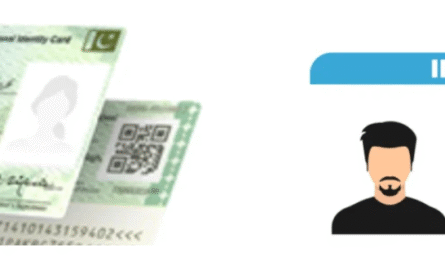In a new development that has caught the attention of car buyers and vehicle owners, the Punjab government has announced a revision in the vehicle registration and transfer fee structure across the province. The decision, which comes as part of the provincial government’s efforts to increase revenue and streamline regulatory processes, has sparked a mixed reaction among citizens, automobile dealers, and transport sector stakeholders.
The Announcement
According to official sources, the revised fee structure will apply to both the registration of new vehicles and the transfer of ownership of existing ones. The government has stated that the increase is aimed at modernizing the vehicle registration system, improving road infrastructure, and discouraging the use of unregistered or illegal vehicles on the roads of Punjab.
While the exact percentage varies depending on the type and engine capacity of vehicles, the overall hike is considered significant. Smaller vehicles such as motorcycles and economy cars will see a moderate increase, whereas high-end cars and luxury vehicles will be subjected to a higher slab of registration and transfer fees.
Rationale Behind the Move
The Punjab government has defended the increase by citing multiple reasons:
- Revenue Generation for Infrastructure
The province is investing heavily in road networks, traffic management systems, and digital reforms in the Excise and Taxation Department. The additional revenue from increased fees is expected to support these initiatives. - Encouraging Legal Ownership
By tightening the registration process and increasing transfer fees, the government hopes to minimize cases of vehicles running without proper documentation. This will also ensure transparency in ownership records, reducing the misuse of vehicles in unlawful activities. - Discouraging Multiple Transfers Without Tax
Previously, many vehicles exchanged hands without timely transfers, leading to complications in ownership records. The revised fee structure is designed to encourage buyers to officially transfer ownership soon after purchase. - Aligning With Other Provinces
Punjab’s new structure also brings its fees closer to those already implemented in other provinces, particularly Sindh and Khyber Pakhtunkhwa, ensuring greater uniformity in vehicle registration systems across Pakistan.
Impact on Car Buyers and Sellers
The increase in registration and transfer fees is expected to directly affect the automobile market in Punjab.
- Car Buyers: Individuals planning to purchase vehicles, especially in the used-car market, may find the overall cost of ownership rising. This could lead to a slowdown in sales, particularly in the middle-income segment.
- Dealers: Automobile dealers have expressed concern that the decision may discourage buyers, especially those already burdened by rising car prices due to inflation, high interest rates on auto financing, and increased fuel costs.
- Luxury Vehicle Owners: The steep hike for high-end vehicles is expected to have less impact on wealthy buyers but may affect the resale and transfer dynamics of premium brands.
Public Reaction
The announcement has received mixed feedback from the public. On social media platforms, many citizens criticized the move, calling it an additional burden on an already strained population. They argue that with rising fuel prices, inflation, and the high cost of vehicles, an increase in registration fees adds unnecessary pressure.
On the other hand, some analysts have supported the step, noting that higher fees could encourage transparency, reduce fraudulent transfers, and provide much-needed funds for road safety initiatives. However, they emphasize that the government must ensure the collected revenue is used efficiently and not wasted in administrative expenses.
Potential Benefits of the Hike
Despite criticism, there are several potential benefits if the increased fees are managed properly:
- Improved Record-Keeping: A stricter registration and transfer process will strengthen the province’s vehicle database, helping law enforcement trace stolen or illegally used vehicles.
- Better Road Safety: Funds collected could be invested in better road signs, traffic monitoring systems, and the repair of existing infrastructure.
- Curbing Tax Evasion: The move is expected to reduce loopholes in the automobile market where ownership transfers were often delayed to avoid paying fees.
Challenges and Concerns
While the decision may bring in more revenue, its implementation faces several challenges:
- Risk of Informal Market Expansion: Higher fees may push some buyers and sellers toward informal deals, avoiding official transfers altogether.
- Public Distrust: Without visible improvements in infrastructure, citizens may view the hike as an unjustified money-making tactic.
- Burden on Middle Class: Rising costs in almost every sector of life are already hitting middle-income families, and this additional fee could further restrict vehicle ownership.
Conclusion
The Punjab government’s decision to increase vehicle registration and transfer fees has stirred a debate that reflects the larger struggle between revenue generation and public affordability. While the move is justified as a way to modernize systems and improve infrastructure, its success will depend on transparency in revenue utilization and efficient service delivery.



